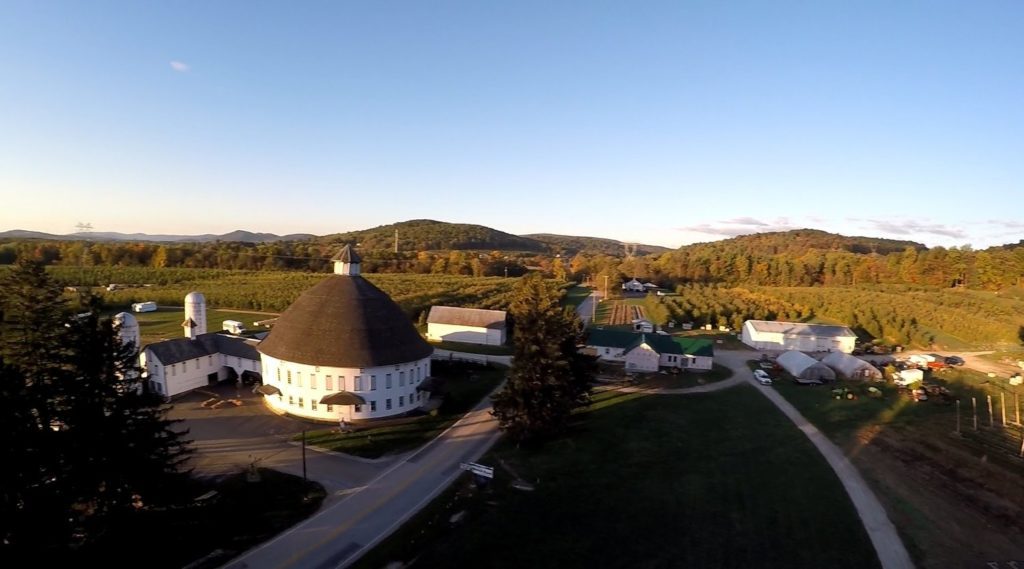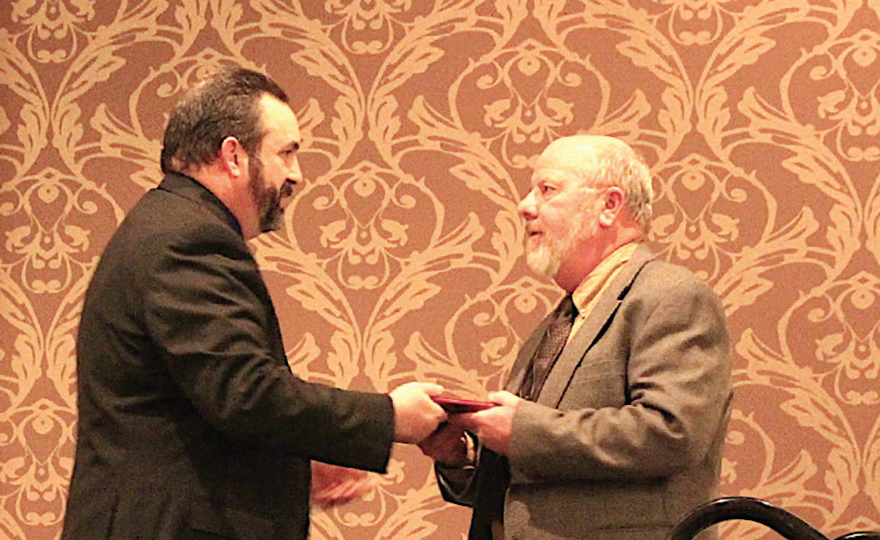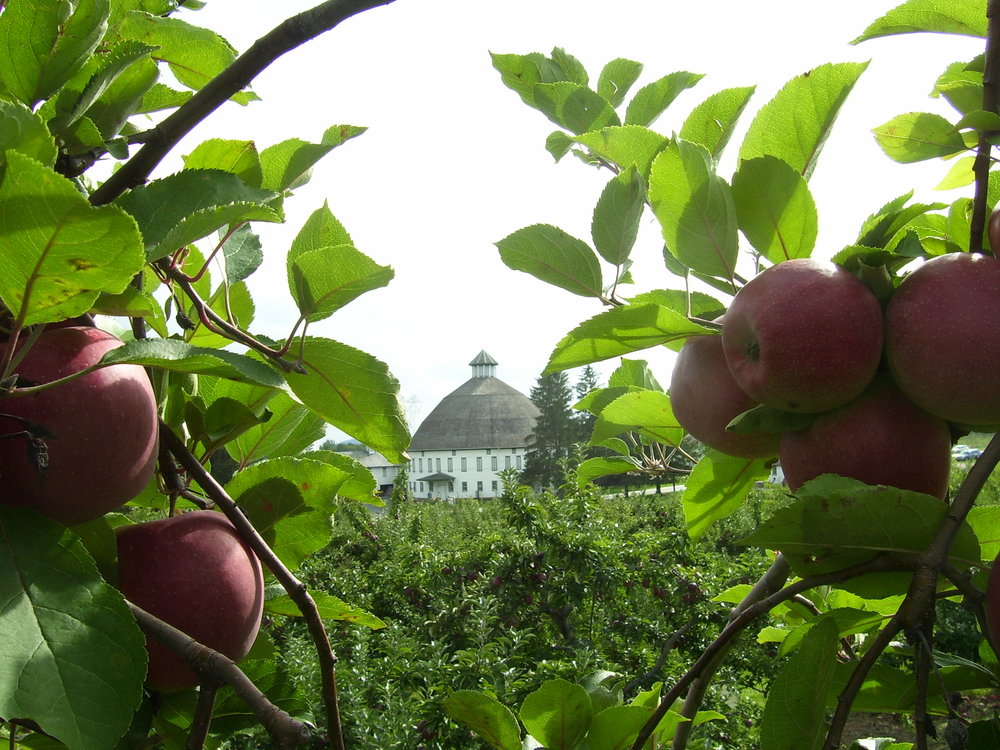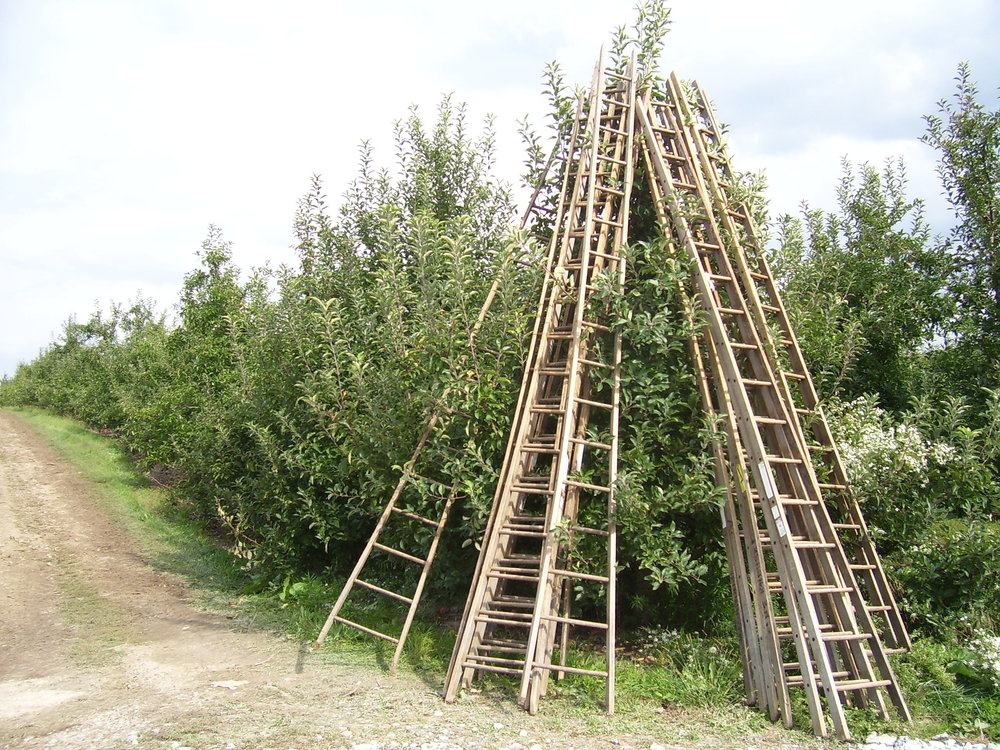

Apr 19, 2019Knouse Fruitlands is Pennsylvania Grower of the Year
At an old round barn not far from one the nation’s biggest historical sites, Brian Knouse balances the past with the future of the family farm.
“I think this farm was one of the first commercial fruit farms in Pennsylvania,” Knouse said. The Knouse family bought its first farm, a struggling apple and vegetable processing plant, in 1926, and has purchased several other farms over the years in the fertile hills of Pennsylvania to build Knouse Fruitlands.
Although the fruit growing is the farm’s history, it’s also started to grow vegetables. And, like many farms in the East and Midwest, the grower’s retail market is posting a higher percentage of return than growing the fruit for wholesale.
Growing up
Roughly half of the 1,200-acre farm is dedicated to more than 30 types of apples, and another 100 acres dedicated to other fruits and vegetables. In addition to peaches, nectarines, apricots, plums, pears, cherries, berries and grapes, it’s also recently expanded into growing asparagus, sweet corn, tasty tomatoes, peppers, cucumbers, pumpkin, zucchini and eggplant.
Knouse was named Grower of the Year by the State Horticultural Association of Pennsylvania – his father and mother earlier were given that honor, his father in 1968, his mother in 1996. Today, Knouse runs the farm with his brother, Milton Knouse II, his sister Tonya Knouse-White, his sons Kyle and Kevin, and his nephew Milton Knouse III.
At the Mid-Atlantic Fruit and Vegetable Convention in Hershey, Pennsylvania, Masonic Village Farm Market Orchard/Farm Market Manager Tad Kuntz, introduced Knouse as the Grower of the Year.


“Although a typical skeptical farmer, he hasn’t been afraid to take on new challenges,” Kuntz said. He has increased his production of fresh apple varieties tremendously over the years and has steered the family business to more productive and profitable orchard designs.
The Fruitlands plantings have followed mainstream trends toward semi-dwarf, dwarfing and even high-density orchard plantings, although Knouse said steep hills are often not planted with narrow rows.
“We’re not to 2,000 trees an acre yet,” he said. About 10 years ago, Knouse was one of the first in the area to plant by GPS auto-steer. More recently, he’s moved to manual steering with the aid of GPS tracking, which he said makes for greater accuracy.
He has shown determination in growing difficult varieties.
“He planted some of the first Honeycrisp apple trees in the state, and after a few years, like the rest of us, vowed to never grow Honeycrisp again,” Kuntz said. “Again, like the rest of us, he didn’t hold true to that sentiment and now grows over 15 acres of Honeycrisp, and although he may curse at them every year, he has been able to produce quality apples year after year.”
History


The retail operation – The Historic Round Barn & Farm Market – is just seven miles from Gettysburg, Pennsylvania. The farm is able to draw a significant number of tourists from the Civil War battlefield.
The market is housed in a “barrel barn” built in 1914 by the Noah Sheely family, who hired an architect to emulate a traditional Shaker design. Originally constructed to house horses and cattle, it’s built around a concentric silo with spoke beams that project outward and support the second floor, which is now rented out for wedding receptions.
“We try to get multiple uses out of it,” Knouse said. The landmark is part of the tourist draw, but also a limiting and expensive one – Knouse said it’s not heated and roofing it is very expensive.
Another new draw is the Thirsty Farmer, their family-owned brew pub across from the farm market. Knouse had been a home brewer long before opening the brew pub.
“We’re diversifying our business,” Knouse said. “We’ll say the profit margin is much better than the farm.”
Looking ahead


Asked what words of encouragement he had for other growers, Knouse said, “It can’t get any worse.”
On a more serious note, he said education and a willingness to try new things remain important.
“If you’re not learning anything in this industry, you’re falling behind,” he said.
For Knouse, that has meant learning which varieties to grow.
“The future of the business is trying to figure out what varieties to grow,” he said. “It’s mind-boggling. For (my) first 30 years of the industry, there were just seven or eight different varieties used commercially.”
Now, there are more than 100 in addition to club varieties, he said. Knouse Fruitlands itself has tried growing Kiku-brand apples, a club variety.
“It’s going to be interesting in the next 10 years,” Knouse said. “I think we’re getting very good at our training systems and our growing systems, but I think it’s varieties that are going to be pushing the industry.”
— Stephen Kloosterman, associate editor














